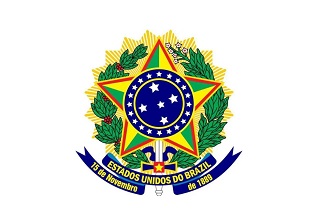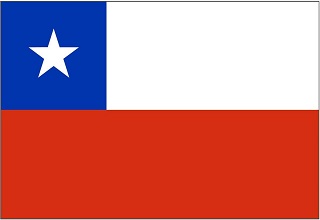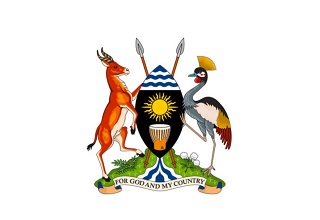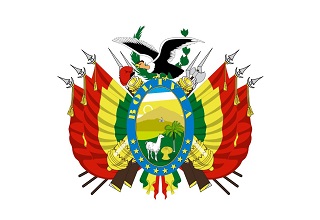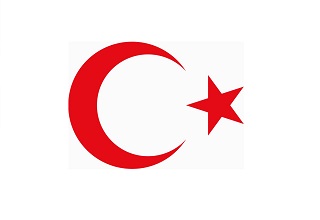Regarding the Inspection and Quarantine Requirements for Proteins and Distillers Grains and Peanut Meal from Brazil to China
According to relevant Chinese laws and regulations and the "Protocol on Sanitary and Phytosanitary Requirements for the Export of Brazilian Corn Distillers Grains and Peanut Meal to China between the Customs of China and the Ministry of Agriculture and Livestock of Brazil", from the date of this announcement, Brazilian corn distillers grains and peanut meal that meet the relevant requirements are allowed to be imported.
I. Inspection and Quarantine Basis
(I) "Biosafety Law of the People's Republic of China";
(II) "Law of the People's Republic of China on Entry and Exit Animal and Plant Quarantine" and its implementing regulations, "Food Safety Law of the People's Republic of China" and its implementing regulations, "Import and Export Commodity Inspection Law of the People's Republic of China" and its implementing regulations;
(III) "Regulations on the Safety Management of Agricultural Genetically Modified Organisms";
(IV) "Measures for the Supervision and Administration of Inspection and Quarantine of Imported and Exported Feed and Feed Additives";
(V) "Protocol on Sanitary and Phytosanitary Requirements for the Export of Brazilian Corn Distillers Grains and Peanut Meal to China between the General Administration of Customs of the People's Republic of China and the Ministry of Agriculture and Livestock of the Federative Republic of Brazil".
II. Names of commodities allowed for entry
Distiller's dried grains with soluble (DDGS) in this announcement refers to the industrial byproducts of distillers dried grains (DDG) and distillers dried grains with soluble (DDGS) produced by grinding, cooking, mixing with yeast, enzymes and other fermentation to produce ethanol from corn grown in Brazil.
Peanut meal in this announcement refers to peanuts grown in Brazil, which are separated from oil by processes such as shelling, grinding, baking, pressing and leaching.
III. Permitted origins
The whole of Brazil.
IV. Enterprise registration
Distiller's dried grains and peanut meal exported from Brazil to China should come from production and processing enterprises approved by the Brazilian Ministry of Agriculture and Livestock. The Brazilian Ministry of Agriculture and Livestock should recommend qualified enterprises to the Chinese Customs in advance, and the recommended enterprise information should include enterprise name, registration number, address, etc. After inspection or review by China Customs, the enterprise will be registered and the list of enterprises will be published on the website and continuously updated.
V. Quarantine pests
Corn distiller's grains and peanut meal exported to China shall not carry the following quarantine pests of concern to China Customs:
(I) Corn distiller's grains:
1. Trogoderma anthrenoides
2. Acanthoscelides obtectus
3. Solenopsis invicta
(II) Peanut meal:
1. Solenopsis invicta
2. Callosobruchus analis
VI. Pre-shipment requirements
(I) Production and storage requirements.
1. The raw materials of corn distiller's grains and peanut meal exported to China should come from corn and peanut planting enterprises that implement integrated pest management (MIP).
2. Enterprises recommended for registration by the Brazilian Ministry of Agriculture and Livestock should establish and effectively operate good hazard analysis and critical control points (HACCP), good manufacturing practices (GMP) and traceability management systems and other quality management systems, or implement management in accordance with their concepts. Strengthen the hygienic management of raw materials and auxiliary materials in the production, processing, storage, transportation and other links to avoid contamination by soil, animal carcasses, feces and other animal residues, plants or other substances, and do not add toxic and harmful substances and any animal-derived ingredients.
3. The processing enterprises and raw material storage places of corn distiller's grains and peanut meal exported to China should be far away from animal farms and pastures to avoid cross-contamination of raw materials by even-toed ungulate excrement, secretions and other pollution sources, strictly implement biosafety regulations, and prevent and control the risk of disease transmission.
4. The finished products of corn distiller's grains and peanut meal exported to China should be stored separately from raw materials and other products. The floor of the storage warehouse should be flat and hardened without water accumulation, and effective measures should be taken to prevent weeds, rats, insects and birds to prevent cross-contamination.
(II) Packaging and transportation requirements.
1. Corn distiller's grains and peanut meal exported to China can be transported in bulk or packaged form, and leakage should be prevented during transportation. The transportation tools should be clean and pollution-free, and they should not be mixed with toxic, harmful, odorous items, other animal and plant products or non-exported products. Before the product is shipped, the means of transport must be thoroughly inspected and, if necessary, cleaned and disinfected to prevent the mixing of weed seeds, live insects, other grain impurities, plant residues, soil and other harmful organisms or other foreign impurities.
2. The packaging materials for corn distiller's grains and peanut meal exported to China should be clean and hygienic, unused, and must not contain toxic and harmful substances, and comply with China's relevant plant quarantine requirements. Each packaging bag should be labeled with "玉米酒糟粕输往中华人民共和国/PROTEINS AND DISTILLERS GRAINS TO BE EXPORTED TO THE PEOPLE'S REPUBLIC OF CHINA" or "花生粕输往中华人民共和国/PEANUT MEAL TO BE EXPORTED TO THE PEOPLE'S REPUBLIC OF CHINA" in Chinese or English, as well as the name of the corn distiller's grains and peanut meal, the production and processing enterprise and its registration number and address in China and other traceable information in Chinese or English.
3. Each container or ship's hold for corn distiller's grains and peanut meal exported to China in bulk should have at least one label in accordance with the above requirements. The label should comply with China's "Feed Label" (GB 10648) standard.
(III) Pre-export inspection and quarantine and certificate requirements.
1. The Ministry of Agriculture and Livestock of Brazil shall conduct inspection and quarantine on each batch of corn distiller's grains and peanut meal exported to China before export. They shall not contain quarantine pests of concern to the Chinese Customs listed in Article 5 of this announcement and other quarantine pests, soil, feathers, animal carcasses, feces, weed seeds and other plant residues, and shall not contain toxic and harmful substances and genetically modified ingredients not officially approved by China, and shall meet the requirements of China's feed safety and hygiene standards.
2. Each batch of corn distiller's grains and peanut meal exported to China that has passed the quarantine shall be accompanied by an official phytosanitary certificate that meets the requirements of International Standard for Phytosanitary Measures No. 12. The phytosanitary certificate shall indicate the name and registration number of the production and processing enterprise, and the container number in the designated column of the phytosanitary certificate. If the corn distiller's grains and peanut meal are treated with pest control before export or during transportation, the pest control treatment method and treatment indicators and other information shall be indicated.
3. The additional statement of the plant quarantine certificate should indicate: "This consignment complies with the requirements described in the protocol of sanitary and phytosanitary requirements for the export of proteins and distillers grains and peanut meal from the Federative Republic of Brazil to the People's Republic of China".
VII. Entry inspection and quarantine
(I) Certificate verification.
1. Verify whether it comes from a registered enterprise.
2. Verify whether the plant quarantine certificate is authentic and valid.
(II) Cargo inspection.
According to relevant laws, regulations, administrative regulations, rules and other provisions, combined with the requirements of this announcement, corn distiller's grains and peanut meal shall be inspected and quarantined, and entry shall be allowed after passing the inspection.
(III) Disqualified treatment.
1. If there is no valid plant quarantine certificate, it shall be returned or destroyed;
2. If it comes from an unregistered enterprise, it shall be returned or destroyed;
3. If quarantine pests or other living quarantine pests of concern to the Chinese Customs are found, they shall be treated with pest control, returned or destroyed;
4. If soil or genetically modified ingredients not approved by the People's Republic of China are found, they shall be returned or destroyed;
5. If animal feces, animal carcasses, poultry feathers, plant seeds or non-compliance with the relevant safety and sanitation standards of Chinese feed are found, they shall be treated with pest control, returned or destroyed in accordance with relevant laws and regulations;
6. If it is found that the packaging mark or label does not meet the requirements of this protocol, it shall be rectified, returned or destroyed;
7. If it is found that the product does not meet the relevant safety and sanitation standards of Chinese feed or other situations that do not meet the requirements of China's entry inspection and quarantine, it will be handled in accordance with relevant laws and regulations.
If the above-mentioned non-conformities are found, the Chinese Customs will notify the Brazilian Ministry of Agriculture and Livestock, and suspend the relevant enterprises' qualifications to export to China depending on the severity of the violations until the Chinese Customs confirms that the problems have been effectively rectified.
GACC
